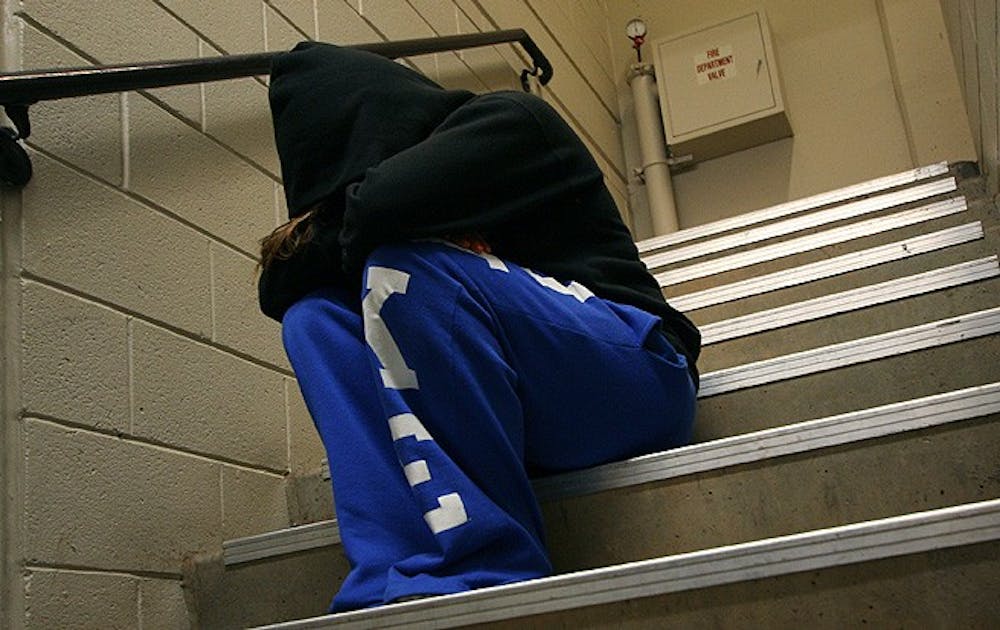Depression screenings held on campus Thursday elucidated the difficulty of treating students with symptoms of depression.
In conjunction with student group Neurocare, Counseling and Psychological Services sponsored self-screening tests, setting up booths in the Bryan Center and Duke Clinic cafeteria. The depression screening is an opportunity for members of the community to learn more about depression and how it may affect friends and family, noted Cynthia Jones, a counselor in the department of psychiatry and behavioral sciences at Duke Medicine.
“We’re all college students, so I’m sure we’ve all felt stress or anxiety over something, so I think [the screening] is just a good resource even if you don’t have depression per se,” sophomore Minali Nigam, president of Neurocare, said. “Self-assessing yourself just gives you a sense of relief.”
Some students who attended the screening noted the deprecating effects of depression on campus.
Madeline*, a sophomore, who has not been medically diagnosed with depression, noted her visit to CAPS last semester was unsatisfactory. Recent events in her life in addition to a family history of depression prompted Madeline to seek help from University counselors.
“I don’t personally think the CAPS program at Duke does a very good job at dealing with it,” she said. “They really treat people as if they were sick from the beginning or maybe as if it’s a behavioral problem, rather than looking at it through family history or circumstances of the person.”
Madeline* said the Duke community should minimize the stigma attached to mental illness and realize it affects many people at least once in their lives.
“[Depression is] an issue that often people are uncomfortable talking about and I think in these teenage years, it’s a very prevalent issue,” Roberts said. “Dialogue is the first thing that needs to happen.”
Jones noted the causes of depression in college students include genetics, life transition, physiological changes and alcohol experimentation. The treatment and diagnosis efforts are critical, she added, especially in light of the prevalence of depression. One in every four young adults will experience a depressive episode by the age of 24, according to the Centers for Disease Control and Prevention.
“We’re raising awareness and we’re reducing stigma,” she said. “And if we can just help one person, that’s worth it.”
Nigam noted that the DSM-IV—a manual that doctors use to treat classify mental disorders—concentrates on the quantity of symptoms rather than the severity of symptoms.
“If someone is feeling depressed on a consistent basis, like every day or if they have highs and lows every day, that would be one sign in that there’s something more that’s going on,” she said.
*Name has been changed for the source’s protection. The source’s class year is accurate.
Get The Chronicle straight to your inbox
Signup for our weekly newsletter. Cancel at any time.

